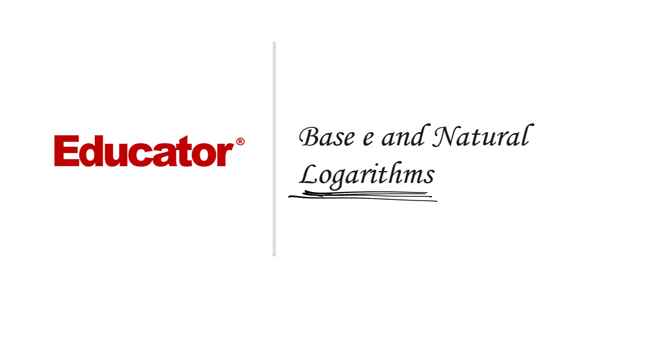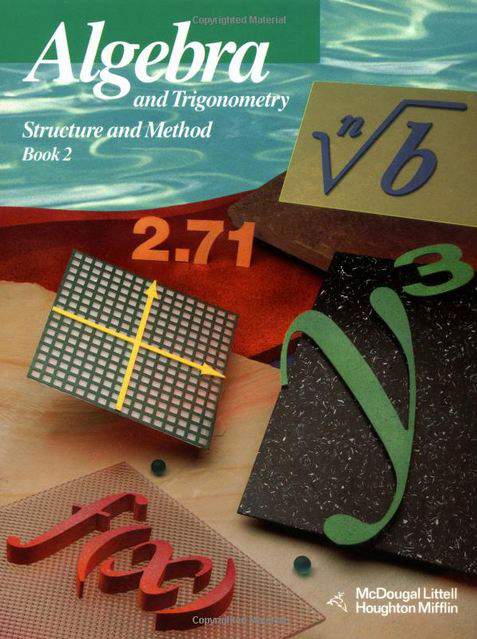Connecting...

This is a quick preview of the lesson. For full access, please Log In or Sign up.
For more information, please see full course syllabus of Algebra 2
For more information, please see full course syllabus of Algebra 2
Algebra 2 Base e and Natural Logarithms
Lecture Description
Number e is an irrational number that is approximately equal to 2.71828. It is called the natural base. Exponential functions with base e are called natural exponential functions. They are used to model processes that grow or decay. The logarithm to the base e is called the natural logarithm and it is written as ln(x). The logarithmic function f(x)=ln(x) is called the natural logarithm function which is the inverse of the function f(y)=e^x. To solve exponential equations or inequalities involving base e, take the natural log (ln) of both sides. To solve natural log equations or inequalities, write each side as a power of e. Always check for extraneous solutions.
Bookmark & Share
Embed
Share this knowledge with your friends!
Copy & Paste this embed code into your website’s HTML
Please ensure that your website editor is in text mode when you paste the code.(In Wordpress, the mode button is on the top right corner.)
×
Since this lesson is not free, only the preview will appear on your website.
- - Allow users to view the embedded video in full-size.
Next Lecture
Previous Lecture









































 Carleen Eaton
Carleen Eaton Grant Fraser
Grant Fraser
 Answer Engine
Answer Engine



0 answers
Post by julius mogyorossy on February 20, 2014
I had a dream about a church where people went to worship mathematics.
0 answers
Post by Kenneth Montfort on February 27, 2013
I forgot to mention I was talking about example 2
1 answer
Fri Mar 1, 2013 11:23 PM
Post by Kenneth Montfort on February 27, 2013
How come at the beginning you didn't just take all the natural logs to the inverse e? I tried and the solutions came out as complex numbers...How do you know when to use properties and when not to use properties?
1 answer
Wed Jan 30, 2013 12:13 AM
Post by Jeff Mitchell on January 29, 2013
at ~13:30 you stated that (x^2+12 / x/8) is the same as (x^2+12)/(8x).
is it? I tried plugging a value of 3 for x just to test and U get;
3^2+12 / (3/8) = 21 / (3/8) = 56 (first equation)
3^2+12 / (8x) = 21 / 24 = < 1
wouldn't (x^2 + 12) / (x/8) = (x^2 + 12)*8 / x